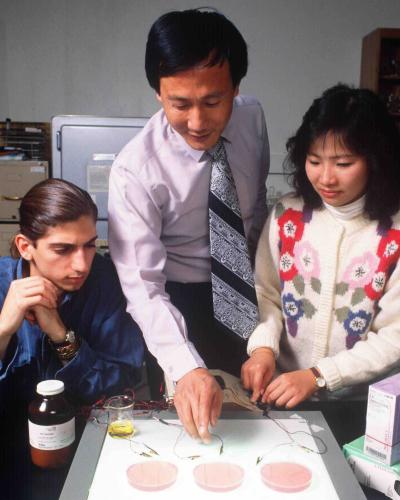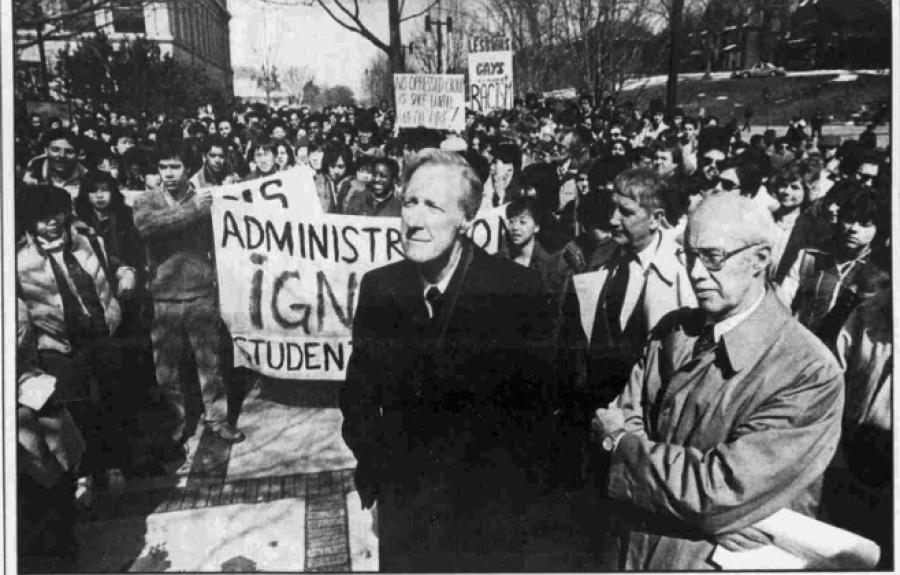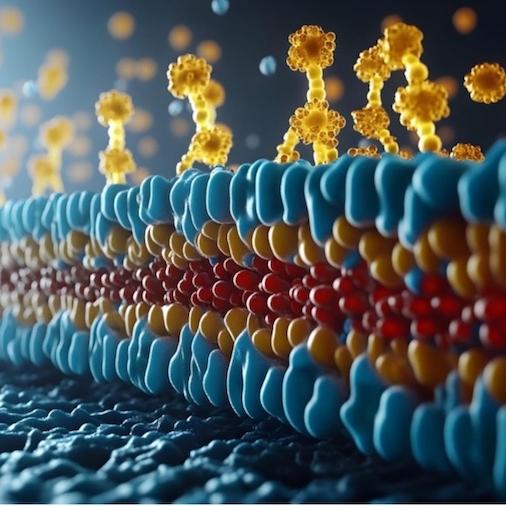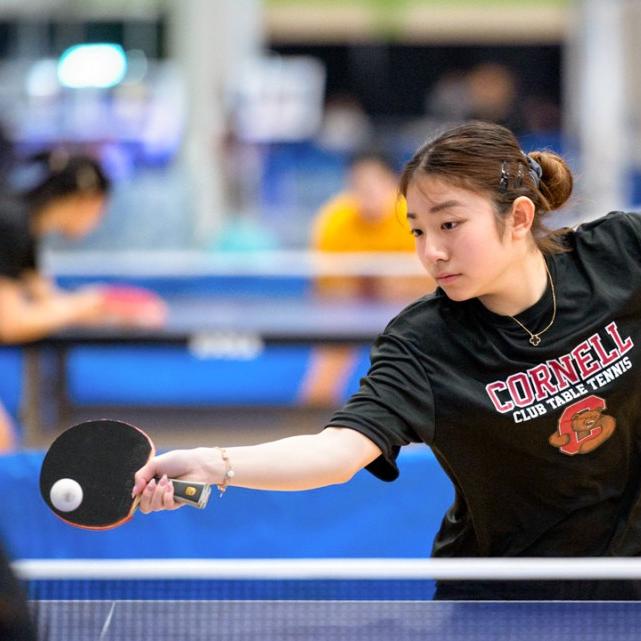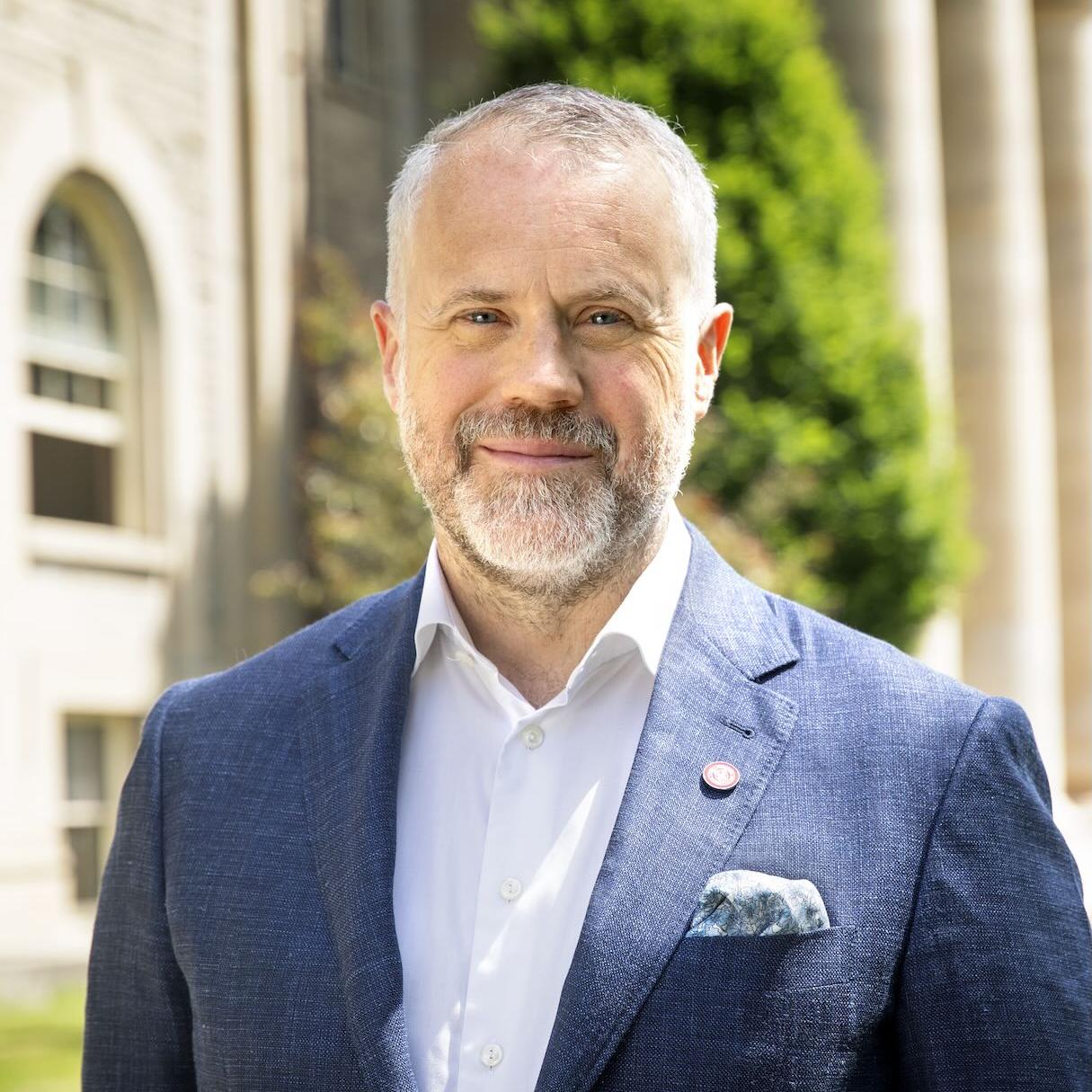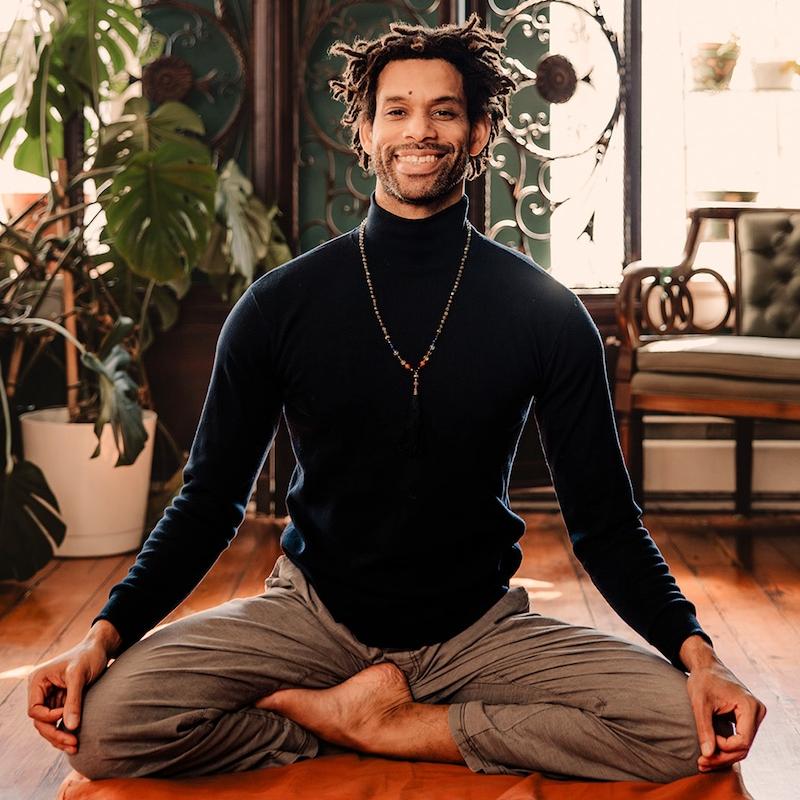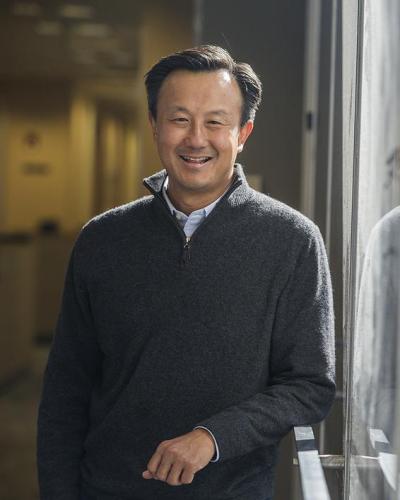This transcript has been edited for length and clarity
The early demands for Asian American studies
I was here from 81 to 85. When I first got here, I think that that was right around the time that we were starting to have more Asian American students on campus.
For most people here, [they were] the first person to come to an Ivy League school. I think almost everybody thought, “Okay, you're here at Ivy League School, you got to make good on that, study and get good grades and graduate and fulfill the American dream.”
Around that time, I got involved in the Student Assembly, so I got to see more of the policy making that was going on at the university level. The Student Assembly back then, even though it was sort of a small organization, it did have interaction with the administration.
There weren't that many Asians on the Student Assembly. It was only me and this other person, Alfred Peng. He was from Hong Kong. He was an international student in the engineering school. We were both on the Student Assembly together, and so we actually would hear about certain things, and reach out to the Asian American Coalition (AAC) and talk about these things with them. Around that time period, there were two things that were brewing. A lot of stuff relating to divestment, anti-apartheid relating to South Africa.
And COSEP [Committee on Special Education Projects], they wanted to make changes to COSEP that would have essentially pulled Asian-Americans outside of COSEP. [An administrator] was making statements about the fact that Asian Americans were adequately represented at Cornell, and so therefore didn't need benefit of COSEP.
I actually was a beneficiary of COSEP, and so that was one thing that Alfred and I were working with AAC. There was also discussion about the fact that there was very little Asian American representation in the faculty.
During that time because I was on student council, we could actually get meetings with the administration, Frank Rhodes and a couple of provosts, including the only African-American member of the administration at the time. Larry Palmer, I think was his name. We were meeting with them on not having Asian Americans taken out of COSEP, giving more Asian American faculty members, and establishing an Asian American studies program.
We would have meetings with the Asian American Coalition leadership, but I don't recall being a member of Asian American Coalition. I think that maybe I felt that as Student Assembly members we had to be a little bit independent from them.
There was a couple of things happening. One, the trustees were convening a seminal study on minority education on campus at Cornell. It also related to the COSEP status and how COSEP may change and how Asian Americans may be taken out.
So, there was an urgency to these meetings. It didn't seem like the administration was very receptive to our messaging. The protests outside Day Hall occurred right around the time. I think, the report was supposed to be coming out and finalized. And, so I think that was in part to show the students' frustration in what was happening on campus.
How John Kuo became interested in Asian American activism
I was not involved in student government in high school. I was politically active in high school on a couple of levels. Growing up, I attended some protests with my parents and that I think was part of the awakening at the time.
And, in Houston, there was a lot of discrimination that I saw not only directed at me, but also in particular my parents and the Asian-American community in Houston.
In high school, I was doing a lot of reading about the 60s and books like Greening of America.
And, you had Vincent Chin — I think it was in ‘81, ’82. [Note: The murder of Vincent Chin happened in 1982.] — that that also brought out some frustration, anger. I recall somewhere in there, ‘81, ‘82, we actually had a representative from AALDEF in New York, the Asian American Legal Education Defense Fund, come up and talk to the students here.
They were talking about all the things that they were doing in New York. And I remember thinking, wow, this is really incredible what they're doing on behalf of the Asian American community and making a difference. And I just remember thinking, this was all sort of a cauldron of different things happening around me.
That in part led me to think, I should join and try to do something. My friend Alfred [Peng] and I talked about that he was running for office on Student Assembly and he encouraged me to as well. I think that that's how we got on Student Assembly.
Building Coalitions & Finding a Voice
One of the things that we were very conscious of, and during that time period there was a term that was kind of thrown out there called the Third World Alliance.
It seems natural that we should join forces, but in order to do that you have to have an understanding of each other. I think the Student Assembly sort of experience was helpful because I had already experiences working with leaders in the black community, in the LGBTQ community, in the Latino community through Student Assembly. We had this sort of mutual working relationships that were the nascent beginnings of something broader. And that's how we got together and we helped, you know, culminating in the rally but also beyond that as well.
In high school I was a student of the 60s. When I read books about the 60s protests, you got little, little, little, little, little peephole views into an Asian American component to that movement. The yellow power. Then you come here and you see that there was this Africana studies program. You saw that there were a whole department with African American professors teaching about the history of Blacks here in the US. I don't think I was aware of the stuff that's happening in California and these other areas like SF State. But I just remember people saying that, “Oh, you know, there are Asian American Studies programs.”
I think one of the things that is interesting is how things are moving forward now. In some ways, the Asian American history they're making right.
